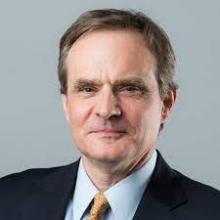You are here
Reshuffle the Fed board now
Nov 07,2021 - Last updated at Nov 07,2021
WASHNGTON, DC — Appointing the chair of the Board of Governors of the United States Federal Reserve is at least as consequential as choosing a US Supreme Court justice. But while no Democratic president would put a Republican on the Supreme Court, President Joe Biden may be giving serious consideration to reappointing Jerome Powell, a Republican appointed four years ago by President Donald Trump, as Fed Chair.
The main argument being made in favor of reappointing Powell is that “the Fed has done a good job”. Looking forward, however, under current leadership the Fed seems headed for a massively consequential policy mistake. The best way to prevent this outcome is to replace Powell with Lael Brainard, a Fed governor since 2014.
The Fed is in the process of figuring out when and how to tighten monetary policy, in the first instance by removing some of the quantitative easing that was intensified during the early phases of the COVID-19 pandemic. Reducing the volume of monthly bond purchases will push up longer-term interest rates, and this will likely be followed by increases in short-term interest rates.
If the Fed’s top officials decide that prices are rising too fast, they can tighten monetary policy sooner and to a greater extent. Recent indications, in the form of public speeches by three Republican-appointed Fed governors, Randal Quarles, Michelle Bowman, and Christopher Waller, suggest that some officials are moving in the “tighten sooner” direction. This is despite the fact that the data do not yet paint a clear picture, and temporary supply disruptions continue to drive many price increases. The risk of a serious policy mistake is high and rising under Powell, and would represent a major setback for Biden’s Build Back Better agenda.
There are currently five Republicans and one Democrat on the Board of Governors. If some version of the Quarles-Bowman-Waller view prevails, as seems likely given the current Board configuration, the result is likely to be premature tightening of monetary policy. Powell himself has a track record of raising interest rates first and asking questions later when the economy is expanding. He has also shifted to a more “hawkish” view, emphasising the risks of inflation in recent weeks, as reflected in leading market commentary.
Other things being equal, tighter monetary policy will tend to slow the economy, resulting in the creation of fewer jobs than would otherwise have been possible. Pressure in the labour market will decline as the demand for workers falls, which will lead to lower wage increases, or perhaps even a reversal of recent gains.
Central banks around the world, including the Fed, deserve credit for their actions during the COVID-19 crisis, but that is now in the rearview mirror. The most important macroeconomic task now is careful management of the recovery. That includes a full, equitable recovery of the job market at higher wage levels, without creating excessively high inflation, which undermines everyone’s purchasing power. Getting this right will require careful analysis of the relevant economic indicators, appropriate leadership of the Fed’s professional staff, and persistent and effective persuasion of other top officials.
The obvious alternative as Chair is Brainard, a Democrat who is a long-time Fed governor and was previously a Treasury official with decades of experience in the trenches of macroeconomic policymaking. She is a professional economist who has helped shape US monetary policy by convincing Republican colleagues to follow her lead both before and during the COVID-19 crisis. She also cares deeply about better worker outcomes, sensible financial regulation, and addressing climate change, and helped save the Community Reinvestment Act, which supports lending to low-income communities. On all of these issues, her values are fully aligned with Biden’s.
Brainard is a better fit for chair, given the tasks US monetary policy now faces in fulfilling the Fed’s “dual mandate” of full employment and price stability. It is in no way a politicisation of the Fed to pick the best available experienced official to be in charge of handling what we expect to happen next.
This is the best possible time to make a switch, precisely because there is agreement at the top of the Fed about the goals its monetary policy should achieve in the next few months: keep short term interest rates very low through the end of 2021. If there is any confusion in the bond market about the Fed’s policy stance, the pandemic demonstrated that, when needed, the central bank has ample tools to move interest rates and affect the availability of credit at all maturities.
Replacing Powell with Brainard would signal continuity of policy in the near term and the importance of Biden’s values for the longer haul. Now is the right time to send that message.
Simon Johnson, a former chief economist at the International Monetary Fund, is a professor at MIT's Sloan School of Management and a co-chair of the COVID-19 Policy Alliance. He is the co-author, with Jonathan Gruber, of “Jump-Starting America: How Breakthrough Science Can Revive Economic Growth and the American Dream”. Copyright: Project Syndicate, 2021. www.project-syndicate.org












